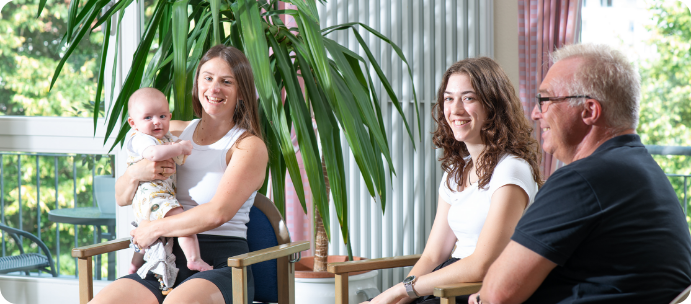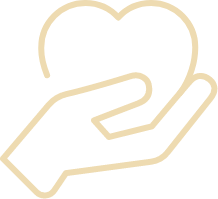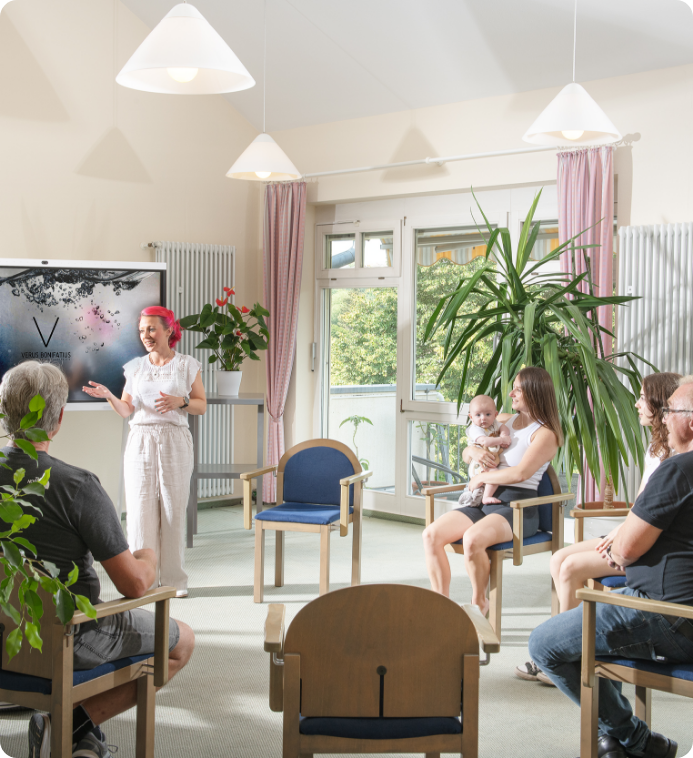
OBSESSIVE-COMPULSIVE DISORDER IN CHILDREN AND ADOLESCENTS
AT THE VERUS BONIFATIUS PRIVATE CLINICObsessive-compulsive disorders are serious mental illnesses that can also have a major impact on the lives of children and adolescents. These disorders manifest themselves in compulsive actions and thoughts that can cause inner tension in young patients. These actions are often perceived as fixed rituals in everyday life, although those affected are aware of the unreasonableness of their compulsions and are unable to control them independently.
TREATMENT OF OBSESSIVE-COMPULSIVE DISORDERS IN CHILDREN AND ADOLESCENTS
At Verus Bonifatius Clinic, we offer specialized treatment for children and adolescents with OCD to provide them with a path to recovery at the highest quality level. In doing so, we take into account the unique needs of young patients and create a compassionate and respectful environment for their recovery.
Trust, honesty, respect, integrity and dedication form the foundation of our care for them.
Our medical professionals bring a high level of understanding to the situation of young patients with OCD and emphasize providing comprehensive care that addresses their physical and psychological needs. The interplay of mind and body is crucial to alleviating their symptoms, and we work to provide holistic treatment that takes this aspect into account.


THERAPEUTIC APPROACHES FOR OBSESSIVE-COMPULSIVE DISORDERS IN CHILDREN AND ADOLESCENTS
The treatment of obsessive-compulsive disorder in children and adolescents requires a holistic approach that is tailored to the individual needs of young patients. In addition to any necessary adapted medication, behavioral therapy, systemic therapy and depth psychology methods are also part of the therapy.

SYMPTOMS OF OBSESSIVE-COMPULSIVE DISORDERS IN CHILDREN AND ADOLESCENTS

Obsessive-compulsive disorder in children and adolescents manifests itself primarily through recurring obsessive actions and thoughts. Those affected are often aware of the unreasonableness of their actions and thoughts, but are still unable to control what they do or think. The rituals often become more protracted and time-consuming as the young patients try to cope with the inner tension and restlessness.
- Strong inner tension
- Fears
- Compulsive actions such as washing, checking, cleaning, counting or tidying up
- Obsessive thoughts in various forms

DIAGNOSIS OF A COMPULSIVE DISORDER IN CHILDREN AND ADOLESCENTS
The diagnosis of obsessive-compulsive disorder in children and adolescents requires a comprehensive medical history, which is taken during a consultation with a doctor. This involves asking about the symptoms and taking a medical history. Therapists can use specific criteria developed for the diagnosis of mental disorders as a guide.
